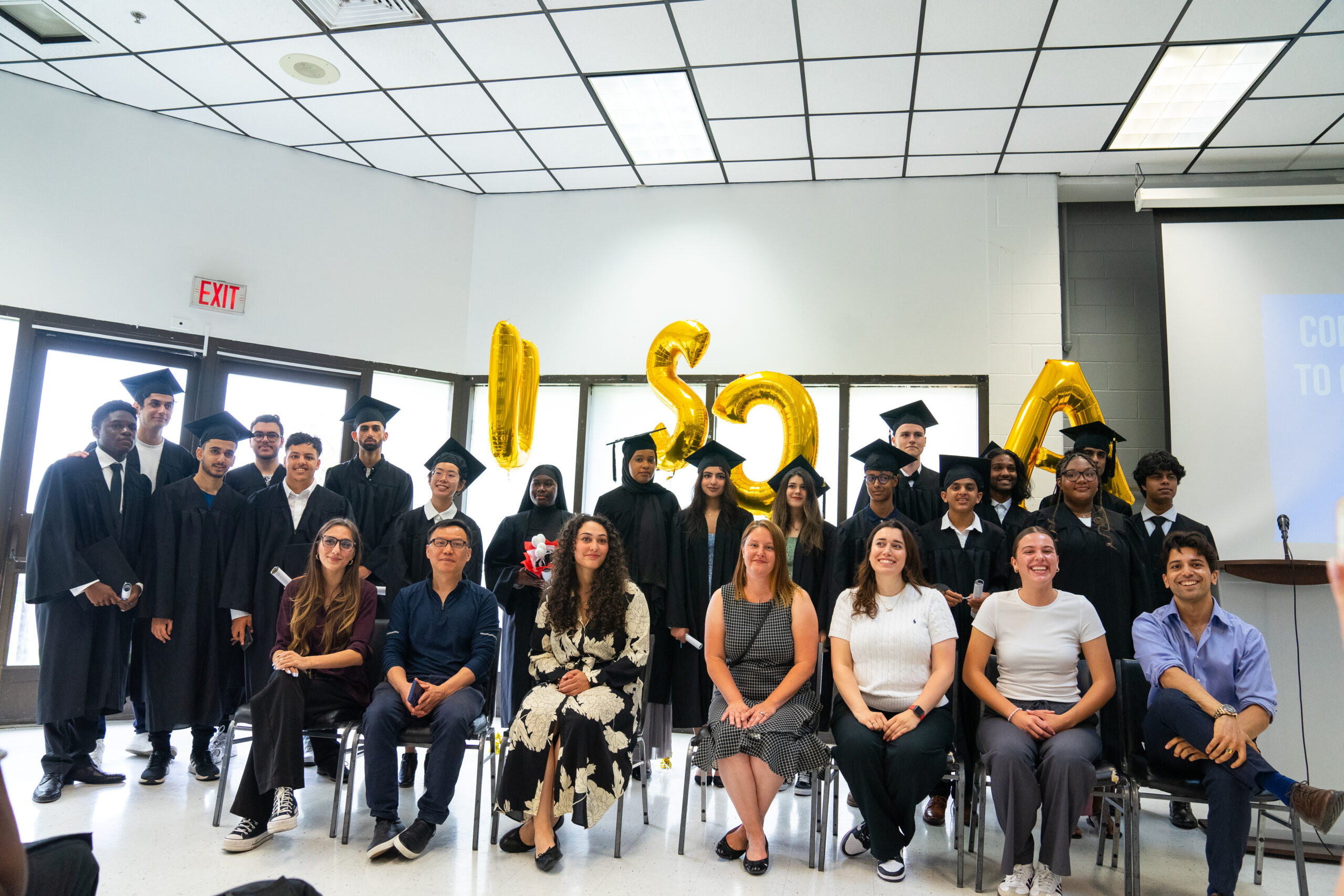Diploma programs in Canada are a strategic choice for international students seeking affordable, career-focused education. International students increasingly choose Canada as their academic destination for its combination of high-quality education and globally recognised credentials. Among the most popular options are diploma programs, known for their cost-effectiveness and practical, career-oriented curriculum. At USCA Academy, students benefit from a wide range of diploma courses tailored to meet industry demands and personal career goals. Whether you’re aiming for direct employment or planning to pursue further academic studies, this guide will walk you through the diverse diploma programs available in Canada and how USCA Academy can help shape your professional future.
Overview of Diploma Programs in Canada
Canadian diploma programs span 1–2 years, equipping students with job-ready skills. Students who want quick entry into work after education should consider diploma programs. Students can select from various career fields to pursue diploma programs in Canada because these qualifications hold worldwide recognition. Diplomas simultaneously function as educational milestones that help students launch career advancement or immigration processes. Study in Canada for international students offers world-class education, diverse cultural experiences, and excellent post-graduation opportunities. Many diploma programs in Canada include co-op internships, allowing students to gain hands-on experience while studying.
Understanding Diplomas in the Canadian Education System
Diploma degrees in Canada run for a short duration, and colleges deliver these concentrated programs. The duration of these diploma programs ranges between 1 and 2 years, while teachers receive focused education about useful industry skills. The Canadian diploma is perfect for students who want practical training with quick career entry. A university preparation program helps students strengthen their academic skills and meet admission requirements for entry into top universities. Graduates can take advantage of the PGWP and PR pathways for diploma graduates, turning their education into long-term opportunities in Canada.
Diploma vs. Degree: Key Distinctions
The ontario secondary school graduation diploma is a key requirement for students completing high school education in Ontario, Canada.
| Feature | Diploma | Degree |
| Duration | 1-2 years | 3-4 years |
| Focus | Practical, career-oriented | Theoretical and academic |
| Institution | Colleges | Universities |
| Cost | Lower Tuition | Higher Tuition |
| Entry Requirement | Varies, usually high school diploma | Higher academic requirements |
| Career Readiness | High | Varies based in field |
Types of Diplomas Offered in Canada
An international school mississauga provides globally accredited education for both local and international students.
- Undergraduate Diploma
High school graduates can attend diplomas that deliver essential fundamental knowledge with practical skills in their selected subject areas. The undergraduate diploma lasts for one or two years, and colleges frequently deliver these programs.
- Postgraduate Diploma in Canada
Postgraduate programs welcome students who possess bachelor’s degrees to provide specialised training with industrial expertise. Postgraduate diplomas provide perfect opportunities to develop stronger job prospects and change professions.
- Post-degree Diploma in Canada
These programs target graduates who need specific professional skills for a different vocational area after completing their degrees. Using practical approaches as their core curriculum, these programs operate at a duration shorter than standard degree programs.
- Advanced Diploma
Complex programs extending from 2 to 3 years provide students with an advanced diploma experience that exceeds standard diploma teachings. This program satisfies students who want educational insights combined with professional expertise.
Most Popular Diploma Programs in Canada
Canada provides various diploma programs spread throughout different industries. Several diploma degree in canada domains have gained high significance among Canadian students according to current market trends.
Business and Management Diplomas
The diploma programs in Business and Management cover Marketing and Accounting and HR in addition to International Business.
This educational pathway attracts student populations who wish to establish business ventures or join corporate sectors.
Information Technology (IT) Diplomas
Canadian IT diploma specialisation produces three primary focus areas, such as Web Development and Network Administration, and Cyber Security. The programs aspire to educate students who show dedication to technology and want to enter one of the world’s fastest-growing industries. The duration of IT diplomas spans between one to two years and features practical education with obligatory internship assignments and work placement requirements. The booming Canadian tech market, together with consistent employment needs in the sector, allows graduates to enter positions such as junior developers, IT support specialists and cybersecurity analysts and systems administrators. The diplomas serve as a strong base for tech field certifications, along with academic advancement in the sector.
Healthcare and Nursing Diplomas
The Canadian employment market strongly desires healthcare diplomas, which include Practical Nursing as well as Medical Office Administration and Health Informatics. Canada needs more healthcare professionals because both the population ages while medical systems are expanding further. Curricula of these programs include book learning together with direct clinical practice, which lets students build practical skills at healthcare institutions. Following graduation, proper training qualifies individuals to work as licensed practical nurses (LPNS) and as medical office assistants or health data coordinators. Through healthcare opportunities, individuals can benefit from stable employment along with support for the immigration process and numerous advancements in their careers.
Engineering Technology Diplomas
Regardless of your chosen discipline between Civil and Mechanical and Electrical and Computer Engineering Technology, you will receive both theoretical education and practical application of skills through diploma programs. The tailored engineering technology diplomas require between two to three years of study to satisfy industry technological requirements through lab experiences and design tasks, and co-op placements. Engineering technology graduates hold job positions including engineering technologist and CAD technician or quality control analyst, and field service engineer roles. Because Canadian engineering programs are internationally renowned and the government invests in infrastructure development, the job market for this discipline remains promising.
Online Diploma Programs in Canada
The growth of digital learning has made Canadian online diploma programs more and more sought after by students.
Advantages of Online Diplomas
Flexible schedules- Remote learners can create their study schedules that work harmoniously with their existing work and familial responsibilities.
Study from anywhere- Quality education opportunities exist for students who study in any chosen location within their reach.
Lower living costs- Students who choose remote learning save costs on residence expenditures as well as transportation costs and education centre fees.
Leading Online Diploma Programs and Institutions
- Athabasca University
- Southern Alberta Institute of Technology (SAIT)
- Centennial College
- Bow Valley College
How to Select the Right Online Program
Applying for the appropriate online diploma program in Canada for international students demands a detailed examination of multiple important aspects. Students must inspect both the accreditation status and recognition awards from the educational institution to verify the program’s validity against employer market preferences. 1 year diploma courses in canada offer fast-track options for gaining practical knowledge and entering the workforce quickly.
The selection of colleges or universities should include those with established industry connections because these partnerships enhance student access to better internship and job placement resources. Check the program material to confirm it supports your professional targets and provides necessary practical training. A flexible program should match your requirements, so check that the deliverable format works within your lifestyle needs. A thorough investigation into all Canadian diploma programs offered through the internet will help you identify one that serves your future goals best.
Research all Canadian online diploma programs before selecting one which complements your career aspirations.
Diploma Programs for International Students
Canada provides various diploma programs spread throughout different industries. Several diploma domains have gained high significance among Canadian students according to current market trends. An international school provides a globally recognized curriculum, such as the International Baccalaureate (IB), British, or American programs, within a multicultural environment, making it an ideal choice for expatriate families and globally mobile students.
Benefits of Studying in Canada
A postgraduate diploma in canada helps international students enhance their qualifications and improve job prospects.
- Canada presents students with an environment consisting of safe surroundings and advanced infrastructure, and first-class healthcare systems, which provide a high-quality standard of living.
- International students find it easier to adapt because Canada provides inclusive communities alongside multicultural settings.
- Work authorisation for international students starts in the middle of their educational journey and extends into post-study work permission through which they can advance their careers.
Entry Requirements for International Applicants
Online diploma courses in canada provide flexible learning options for students balancing studies with work or personal commitments.
Tuition: CAD 10,000 – 20,000 per year (varies by program)
Living: CAD 10,000 – 15,000 annually
Study Permit and Visa Process
- Canada presents students with an environment consisting of safe surroundings and advanced infrastructure, and first-class healthcare systems, which provide a high-quality standard of living.
- International students find it easier to adapt because Canada provides inclusive communities alongside multicultural settings.
- Work authorisation for international students starts in the middle of their educational journey and extends into post-study work permission through which they can advance their careers.
Postgraduate and Post-Degree Diploma Options
Canada offers a wide range of postgraduate and post-degree diploma programs designed to enhance your skills and boost employability. These programs are ideal for international students seeking specialized knowledge and practical experience in their chosen field. PG diploma courses in canada are popular among international students for their affordability, career orientation, and immigration benefits.
What is a Postgraduate Diploma?
After obtaining a bachelor’s degree, students can pursue a postgraduate diploma because it delivers specialised training between basic degrees and master’s programs.
Why Pursue a PG or Post-Degree Diploma?
- Faster pathway to employment
- Immigration benefits
- Affordable alternative to graduate studies
- The Canadian/PG diploma courses in Canada incorporate specialised industrial training along with on-site work opportunities.
Career Outcomes After a Canadian Diploma
Graduates of Canadian diploma programs enjoy diverse career opportunities across industries like healthcare, technology, business, and engineering. These programs often include co-op placements, helping students gain real-world experience and transition smoothly into the workforce.
Employment Opportunities for Diploma Graduates
Graduates can work in entry-level to mid-management roles depending on the industry. Fields like healthcare, IT, and business offer particularly strong prospects.
Industry Demand for Diploma Holders
- Healthcare assistants
- Junior software developers
- Marketing coordinators
- Engineering technicians
Academic Progression Opportunities
- Pathway to degree programs
- Transfer credits to universities
- Qualifications for professional certifications
How to Choose the Right Diploma Program
Selecting the right diploma program involves considering your career goals, interests, and the job market demand in Canada. Researching program content, institution reputation, and opportunities for hands-on training can help you make an informed decision.
Key Factors to Consider
- Your career goals
- Course duration and cost
- Internship/co-op options
- Location and college reputation
Aligning Programs with Career Aspirations
Selecting between a 1-year diploma course and a postgraduate diploma in Canada requires matching them match your future professional direction.
University vs. College Diplomas
| Criteria | University Degrees | College Diplomas |
| Program Focus | Academic and theoretical | Practical, hands-on training |
| Credential Awarded | Bachelor’s, Master’s, PhD degrees | Diploma or Advanced Diploma |
| Duration | 3–4 years for undergraduate programs | 1–3 years, depending on diploma type |
| Institution Type | Universities (e.g., University of Toronto, UBC) | Colleges (e.g., George Brown, Centennial College) |
| Career Outcome | Prepares for research, academia, and professional careers | Prepares for immediate employment in industry |
| Admission Requirements | Higher academic requirements, often competitive | More flexible, skill-focused admission criteria |
| Cost | Generally more expensive | More affordable and cost-effective |
| Pathway Options | Leads to graduate studies or professional degrees | Can lead to degree programs or skilled immigration |
| Target Audience | Students seeking academic depth and long-term study paths | Students seeking job-ready skills and quick entry into the workforce |
| Examples of Fields | Engineering, Medicine, Business, Science | Hospitality, IT, Business Admin, Health Care |
Conclusion
The educational system offers a wide array of diploma programs in canada tailored to meet the evolving needs of international working professionals across various business sectors. These programs, whether pursued online or offline to designed not only to accelerate professional growth but also to open pathways to permanent residency and further academic advancement. At USCA Academy, international students gain access to high-quality, industry-aligned diploma courses that support both career development and long-term immigration goals. With opportunities available for both domestic and international students, now is the ideal time to Limited 2024 Intake Seats – Apply Now for PGWP-Eligible Diplomas.
Frequently Asked Questions About Diploma Programs in Canada
1. Can I do a master’s after a diploma?
Diploma credits can transfer to degree programs at institutions like Thompson Rivers University
2. Which diploma is most in demand in Canada?
The Canadian employment market demands diplomas in healthcare, medicine, IT and business at top positions.
3. Which diploma has the highest salary?
Engineering diplomas, as well as Information Technology and specialised business diplomas, deliver the highest initial remuneration.
4. Can I get a job in Canada after my diploma?
Canada accepts diploma students to full-time work through internship and co-op programs integrated with their study structure.
5. Is it better to study for a diploma or a degree in Canada?
The decision between diploma study and degree study depends on what you want to achieve in Canada. A diploma takes less time and costs less money due to its career-oriented profile, but degrees provide a more extensive academic experience.









